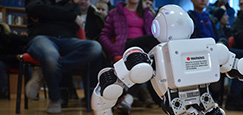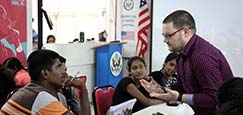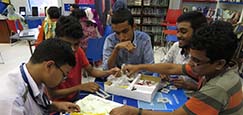American Heroes
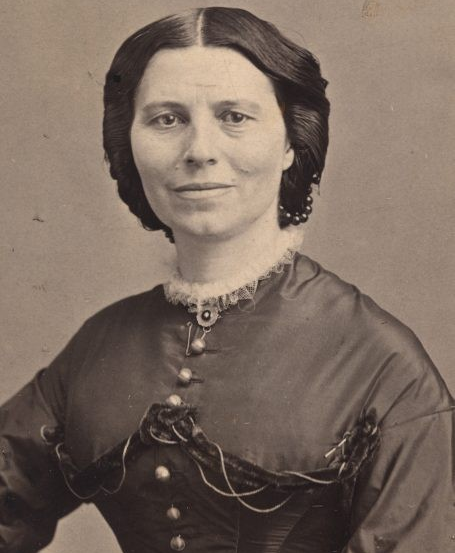
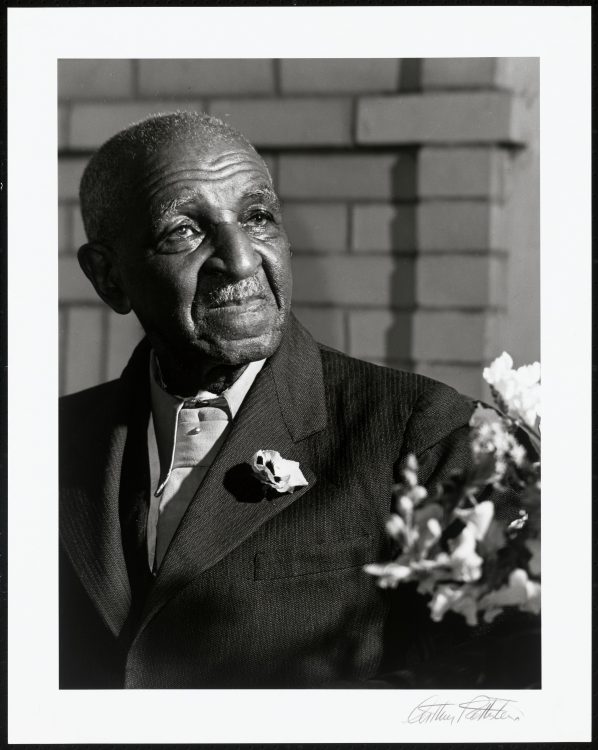
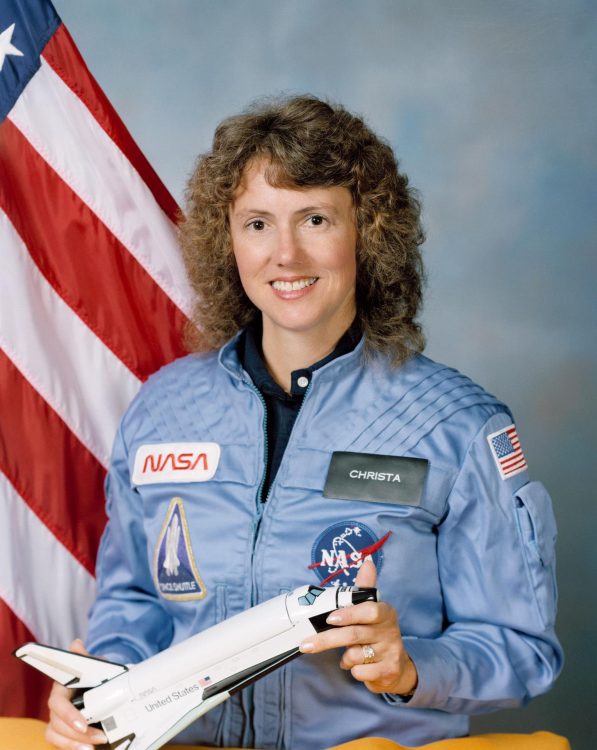
This list of more than 200 American heroes has been selected by the White House as part of the 250th anniversary of U.S. independence. In collaboration with their posts, American Spaces may consider programs and activities to commemorate these individuals. Relevant program toolkits have been linked to individuals’ names.
American Spaces visitors can access the American Heroes collection in OverDrive. The collection includes more than 200 books, audiobooks, and magazines written by or written about these American Heroes.
Each individual has been chosen for embodying the American spirit of daring and defiance, excellence and adventure, courage and confidence, loyalty and love. Astounding the world by the sheer power of their example, each one of them has contributed indispensably to America’s noble history, the best chapters of which are still to come.
President Donald J. Trump, Executive Order 13978 (Building the National Garden of American Heroes)
Alphabetical List
A–C
- Ansel Adams
- John Adams
- Samuel Adams
- Muhammad Ali (Program Toolkit)
- Luis Walter Alvarez
- Susan B. Anthony
- Hannah Arendt
- Louis Armstrong
- Neil Armstrong
- Crispus Attucks
- John James Audubon
- Lauren Bacall
- Clara Barton
- Todd Beamer
- Alexander Graham Bell
- Roy Benavidez
- Ingrid Bergman
- Irving Berlin
- Humphrey Bogart
- Daniel Boone
- Norman Borlaug
- William Bradford
- Herb Brooks
- Kobe Bryant
- William F. Buckley Jr.
- Sitting Bull
- Frank Capra
- Andrew Carnegie
- Charles Carroll
- John Carroll
- George Washington Carver
- Johnny Cash
- Joshua Chamberlain
- Whittaker Chambers
- Johnny “Appleseed” Chapman
- Ray Charles
- Julia Child
- Gordon Chung-Hoon
- William Clark
- Henry Clay
- Samuel Clemens (Mark Twain)
- Roberto Clemente
- Grover Cleveland
- Red Cloud
- William F. “Buffalo Bill” Cody
- Nat King Cole
- Samuel Colt
- Christopher Columbus
- Calvin Coolidge
- James Fenimore Cooper
- Davy Crockett
D-G
- Benjamin O. Davis Jr.
- Miles Davis
- Dorothy Day
- Joseph H. De Castro
- Emily Dickinson
- Walt Disney (Program Toolkit)
- William “Wild Bill” Donovan
- Jimmy Doolittle
- Desmond Doss
- Frederick Douglass
- Herbert Henry Dow
- Katharine Drexel
- Peter Drucker
- Amelia Earhart
- Thomas Edison
- Jonathan Edwards
- Albert Einstein
- Dwight D. Eisenhower
- Duke Ellington
- Ralph Waldo Emerson
- Medgar Evers
- David Farragut
- the Marquis de La Fayette
- Mary Fields
- Henry Ford
- George Fox
- Aretha Franklin
- Benjamin Franklin
- Milton Friedman
- Robert Frost
- Gabby Gabreski
- Bernardo de Gálvez
- Lou Gehrig
- Theodor Seuss Geisel
- Cass Gilbert
- Ruth Bader Ginsburg
- John Glenn
- Barry Goldwater
- Samuel Gompers
- Alexander Goode
- Carl Gorman
- Billy Graham
- Ulysses S. Grant
- Nellie Gray
- Nathanael Greene
- Woody Guthrie
H-L
- Nathan Hale
- William Frederick “Bull” Halsey Jr.
- Alexander Hamilton
- Ira Hayes
- Hans Christian Heg
- Ernest Hemingway
- Patrick Henry
- Charlton Heston
- Alfred Hitchcock
- Billie Holiday
- Bob Hope
- Johns Hopkins
- Grace Hopper (Program Toolkit)
- Sam Houston
- Whitney Houston
- Julia Ward Howe
- Edwin Hubble
- Daniel Inouye
- Andrew Jackson
- Robert H. Jackson
- Mary Jackson
- John Jay
- Thomas Jefferson (Program Toolkit)
- Steve Jobs
- Katherine Johnson
- Barbara Jordan
- Chief Joseph
- Elia Kazan
- Helen Keller
- John F. Kennedy
- Francis Scott Key
- Coretta Scott King
- Martin Luther King Jr. (Program Toolkit)
- Russell Kirk
- Jeane Kirkpatrick
- Henry Knox
- Tadeusz Kościuszko
- Harper Lee
- Pierre Charles L’Enfant
- Meriwether Lewis
- Abraham Lincoln (Program Toolkit)
- Vince Lombardi
- Henry Wadsworth Longfellow
- Clare Boothe Luce
M-R
- Douglas MacArthur
- Dolley Madison
- James Madison
- George Marshall
- Thurgood Marshall
- William Mayo
- Christa McAuliffe
- William McKinley
- Louise McManus
- Herman Melville
- Thomas Merton
- George P. Mitchell
- Maria Mitchell
- William “Billy” Mitchell
- Samuel Morse
- Lucretia Mott
- John Muir
- Audie Murphy
- Edward Murrow
- John Neumann
- Annie Oakley
- Jesse Owens
- Rosa Parks
- George S. Patton Jr.
- Charles Willson Peale
- William Penn
- Oliver Hazard Perry
- John J. Pershing
- Edgar Allan Poe
- Clark Poling
- John Russell Pope
- Elvis Presley (Program Toolkit)
- Jeannette Rankin
- Ronald Reagan
- Walter Reed
- William Rehnquist
- Paul Revere
- Henry Hobson Richardson
- Hyman Rickover
- Sally Ride
- Matthew Ridgway
- Jackie Robinson
- Norman Rockwell
- Caesar Rodney
- Eleanor Roosevelt
- Franklin D. Roosevelt
- Theodore Roosevelt
- Betsy Ross
- Babe Ruth
S-V
- Sacagawea
- Jonas Salk
- John Singer Sargent
- Antonin Scalia
- Norman Schwarzkopf
- Junípero Serra
- Elizabeth Ann Seton
- Robert Gould Shaw
- Fulton Sheen
- Alan Shepard
- Frank Sinatra
- Margaret Chase Smith
- Bessie Smith
- Elizabeth Cady Stanton
- Jimmy Stewart
- Harriet Beecher Stowe
- Gilbert Stuart
- Anne Sullivan
- William Howard Taft
- Maria Tallchief
- Maxwell Taylor
- Tecumseh
- Kateri Tekakwitha
- Shirley Temple
- Nikola Tesla
- Jefferson Thomas
- Henry David Thoreau
- Jim Thorpe
- Augustus Tolton
- Alex Trebek
- Harry S Truman
- Sojourner Truth
- Harriet Tubman
- Dorothy Vaughan
- C. T. Vivian
- John von Neumann
W-Z
- Thomas Ustick Walter
- Sam Walton
- Booker T. Washington
- George Washington (Program Toolkit)
- John Washington
- John Wayne
- Ida B. Wells-Barnett (Program Toolkit)
- Phillis Wheatley
- Walt Whitman
- Laura Ingalls Wilder
- Roger Williams
- John Winthrop
- Frank Lloyd Wright
- Orville Wright
- Wilbur Wright
- Alvin C. York
- Cy Young
- Lorenzo de Zavala
American Heroes by Category
Democracy & Governance
- John Adams – Founding Father and 2nd U.S. President; shaped early American government and foreign policy.
- Samuel Adams – Revolutionary leader and organizer of the Sons of Liberty; strong advocate for independence.
- Susan B. Anthony – Leading figure in the women’s suffrage movement and co-founder of the National Woman Suffrage Association.
- Hannah Arendt – Political theorist who examined totalitarianism and democratic freedom.
- Ruth Bader Ginsburg – U.S. Supreme Court Justice; champion of civil rights and gender equality through law.
- Charles Carroll – Signer of the Declaration of Independence and advocate for religious freedom.
- Henry Clay – Influential senator and “Great Compromiser” who worked to preserve the Union.
- Frederick Douglass – Former slave, abolitionist, and powerful voice for human rights and equality under the law.
- Medgar Evers – Civil rights activist and NAACP field secretary; fought for voter registration and equal rights.
- Barry Goldwater – U.S. senator and presidential candidate; shaped conservative political thought.
- Alexander Hamilton – Founding Father and first Secretary of the Treasury; architect of America’s financial system.
- Patrick Henry – Revolutionary orator best known for declaring “Give me liberty or give me death!”
- Robert H. Jackson – U.S. Supreme Court Justice and chief U.S. prosecutor at the Nuremberg Trials.
- John Jay – First Chief Justice of the Supreme Court and co-author of The Federalist Papers.
- Thomas Jefferson – Principal author of the Declaration of Independence and 3rd U.S. President.
- Barbara Jordan – Constitutional scholar and congresswoman; known for her powerful defense of the Constitution during Watergate.
- Jeane Kirkpatrick – First woman to serve as U.S. Ambassador to the United Nations; strong voice on democracy and foreign policy.
- Coretta Scott King – Civil rights leader and wife of MLK Jr.; carried on his legacy of peaceful activism.
- Martin Luther King Jr. – Leader of the civil rights movement; championed nonviolent resistance and the Civil Rights Act.
- Abraham Lincoln – 16th U.S. President; preserved the Union and issued the Emancipation Proclamation.
- Clare Boothe Luce – Congresswoman, ambassador, and advocate for democracy and anti-communism abroad.
- James Madison – “Father of the Constitution” and 4th U.S. President; key figure in drafting the Bill of Rights.
- Thurgood Marshall – First African American Supreme Court Justice; argued Brown v. Board of Education.
- William McKinley – 25th President who led the U.S. during the Spanish-American War and promoted American expansionism.
- Lucretia Mott – Quaker activist and early women’s rights advocate who fought for equality under the law.
- William Penn – Founder of Pennsylvania and early advocate for democracy and religious tolerance.
- Jeannette Rankin – First woman elected to Congress and a lifelong pacifist and reform advocate.
- Ronald Reagan – 40th President who emphasized limited government and American leadership during the Cold War.
- William Rehnquist – U.S. Supreme Court Chief Justice; known for emphasis on federalism and judicial restraint.
- Caesar Rodney – Signer of the Declaration of Independence and key vote for Delaware’s support of American independence.
- Eleanor Roosevelt – First Lady, diplomat, and human rights champion; helped draft the Universal Declaration of Human Rights.
- Franklin D. Roosevelt – 32nd U.S. President who led during the Great Depression and WWII; expanded federal government’s role.
- Theodore Roosevelt – 26th U.S. President; promoted progressive reforms and global leadership.
- Antonin Scalia – Supreme Court Justice known for originalist interpretation of the Constitution.
- Elizabeth Cady Stanton – Legal reformer and author who advocated for changes in U.S. laws regarding women’s rights.
- C. T. Vivian – While primarily known for civil rights leadership, he played a role in expanding legal protections for African Americans.
- George Washington – As the first U.S. President and leader in the fight for independence, he combated British propaganda during the Revolutionary War.
- John Washington – Early colonial ancestor of George Washington; relevant to genealogy and colonial studies.
- Roger Williams – Founder of Rhode Island and proponent of separation of church and state.
- John Winthrop – Puritan leader who envisioned America as a “city upon a hill,” a model of self-governance.
Justice and the Rule of Law
- Ruth Bader Ginsburg – U.S. Supreme Court Justice; champion of civil rights and gender equality through law.
- Robert H. Jackson – U.S. Supreme Court Justice and chief U.S. prosecutor at the Nuremberg Trials.
- Barbara Jordan – Constitutional scholar and congresswoman; known for her powerful defense of the Constitution during Watergate.
- Thurgood Marshall – First African American Supreme Court Justice; argued Brown v. Board of Education.
- Lucretia Mott – Quaker activist and early women’s rights advocate who fought for equality under the law.
- William Rehnquist – U.S. Supreme Court Chief Justice; known for emphasis on federalism and judicial restraint.
- Antonin Scalia – Supreme Court Justice known for originalist interpretation of the Constitution.
- Elizabeth Cady Stanton – Legal reformer and author who advocated for changes in U.S. laws regarding women’s rights.
- C. T. Vivian – While primarily known for civil rights leadership, he played a role in expanding legal protections for African Americans.
- Ida B. Wells-Barnett (Program Toolkit) – Investigative journalist whose anti-lynching work exposed systemic failures in the justice system.
Science & Technology
- Ansel Adams – Renowned landscape photographer and conservationist.
- Luis Walter Alvarez – Nobel Prize-winning physicist; particle resonance discoveries.
- Neil Armstrong – First person on the Moon; NASA astronaut.
- John James Audubon – Ornithologist and naturalist; created major scientific wildlife illustrations.
- Alexander Graham Bell – Inventor of the telephone and educator of the deaf.
- Norman Borlaug – ‘Father of the Green Revolution’; Nobel Peace Prize for agricultural innovation.
- George Washington Carver – Agricultural scientist and inventor.
- Julia Child – Advocate for science in cooking and public education through media.
- Gordon Chung-Hoon – Navy admiral and decorated WWII hero, also a symbol of integration in military roles.
- Herbert Henry Dow – Chemist and industrialist; founded Dow Chemical.
- Peter Drucker – Founder of modern management education; taught in U.S. institutions and shaped curricula globally.
- Thomas Edison – Inventor of the phonograph, electric light bulb, and early motion pictures.
- Albert Einstein – Theoretical physicist; developed the theory of relativity.
- Carl Gorman – Navajo Code Talker; contributed to secure communications and countering enemy interception during WWII.
- Grace Hopper (Program Toolkit) – Advocate for computer science education and curriculum development.
- Edwin Hubble – Astronomer; namesake of the Hubble Space Telescope.
- Mary Jackson – NASA’s first Black female engineer.
- Steve Jobs – Tech entrepreneur; co-founder of Apple and key driver in personal computing.
- Katherine Johnson – NASA mathematician; key to success of U.S. space missions.
- Maria Mitchell – First internationally recognized U.S. female astronomer; professor at Vassar College; symbol of women in education.
- William Mayo – Co-founder of the Mayo Clinic; leader in building a sustainable healthcare enterprise.
- Samuel Morse – Inventor of the telegraph and Morse code.
- John Muir – Environmentalist and conservationist; ‘Father of the National Parks.’
- John Russell Pope – Architect of iconic D.C. buildings.
- Walter Reed – Discovered mosquito transmission of yellow fever; advanced epidemiology.
- Hyman Rickover – Admiral who pioneered nuclear propulsion for the Navy.
- Sally Ride – First American woman in space.
- Henry Hobson Richardson – Influential architect.
- Jonas Salk – Developed the first successful polio vaccine.
- Alan Shepard – First American in space; part of Cold War space race.
- Maria Tallchief – Advocate for health, education, and arts accessibility.
- Nikola Tesla – Developed AC electricity system; contributed to infrastructure for economic modernization.
- Dorothy Vaughan – NASA mathematician and human computer.
- John von Neumann – Pioneering mathematician and physicist in quantum mechanics and computer science.
- Thomas Ustick Walter – Architect of the U.S. Capitol dome; contributed to scientific design.
English Language Learning & Teaching
- Emily Dickinson – Iconic American poet whose concise, emotionally deep language is often studied by English learners.
- Frederick Douglass – Former slave, abolitionist, and powerful voice for human rights and equality under the law.
- Ralph Waldo Emerson – Philosopher and writer whose essays are key texts in American literature and English education.
- Robert Frost – Poet known for accessible language and themes; widely taught in English classes.
- Ernest Hemingway – Known for clear, straightforward English prose that is central to modern English instruction.
- Helen Keller – Advocate for education and communication across barriers, especially for the visually and hearing impaired.
- Harper Lee – Author of To Kill a Mockingbird, a major text in English literature education.
- Anne Sullivan – Taught Helen Keller to communicate using English, even without sight or hearing — a historic moment in language education.
- Henry David Thoreau – Known for his reflective writing in Walden and Civil Disobedience.
- Mark Twain (Samuel Clemens) – One of the most iconic American authors; his works are staples in English language classrooms.
- Phillis Wheatley – First African American woman to publish a book of poetry; important in both literature and English learning contexts.
- Walt Whitman – Foundational figure in American poetry; “Leaves of Grass” is a major text in literature studies.
Economic Development & Trade
- Andrew Carnegie – Steel magnate and philanthropist; helped build America’s industrial economy.
- Peter Drucker – Founder of modern management education; taught in U.S. institutions and shaped curricula globally.
- Herbert Henry Dow – Chemist and industrialist; founded Dow Chemical.
- Thomas Edison – Inventor of the phonograph, electric light bulb, and early motion pictures.
- Benjamin Franklin – In addition to diplomacy and science, he was a successful publisher and entrepreneur.
- Milton Friedman – Nobel-winning economist; influential in shaping global free market economic policy.
- Henry Ford – Founder of Ford Motor Company; revolutionized manufacturing with the assembly line.
- Steve Jobs – Tech entrepreneur; co-founder of Apple and key driver in personal computing.
- William Mayo – Co-founder of the Mayo Clinic; leader in building a sustainable healthcare enterprise.
- George P. Mitchell – Pioneer in shale gas extraction; major contributor to modern American energy independence.
- Maria Mitchell – First internationally recognized U.S. female astronomer; professor at Vassar College; symbol of women in education.
- Nikola Tesla – Developed AC electricity system; contributed to infrastructure for economic modernization.
Security
- Todd Beamer – Passenger on Flight 93 who led an attempt to stop hijackers during 9/11.
- Roy Benavidez – Medal of Honor recipient for valor in Vietnam.
- Norman Borlaug – ‘Father of the Green Revolution’; Nobel Peace Prize for agricultural innovation.
- Gordon Chung-Hoon – Navy admiral and decorated WWII hero, also a symbol of integration in military roles.
- Benjamin O. Davis Jr. – Commander of Tuskegee Airmen; broke racial barriers in the military.
- Joseph H. De Castro – First Hispanic Medal of Honor recipient.
- Desmond Doss – WWII medic who saved lives without carrying a weapon; Medal of Honor recipient.
- William Donovan – Founder of the OSS, precursor to the CIA.
- Jimmy Doolittle – Leader of the WWII Doolittle Raid; strategic response to Pearl Harbor.
- Dwight D. Eisenhower – Supreme Allied Commander in WWII; U.S. President during Cold War.
- David Farragut – First U.S. Navy admiral; commanded during Civil War.
- Ulysses S. Grant – Led Union Army in Civil War; later focused on Reconstruction security.
- Alexander Goode – Rabbi and U.S. Army chaplain who gave his life to save soldiers during World War II.
- Carl Gorman – Navajo Code Talker; contributed to secure communications and countering enemy interception during WWII.
- Nathan Hale – Revolutionary War spy; early American intelligence figure.
- William Halsey Jr. – Five-star Navy admiral in WWII.
- Ira Hayes – Flag raiser at Iwo Jima; symbol of military valor and sacrifice.
- Hans Christian Heg – Led Scandinavian Union regiment in Civil War; died in battle.
- Daniel Inouye – WWII Medal of Honor recipient and longtime senator; veteran advocate.
- Douglas MacArthur – WWII and Korean War general; led Allied occupation of Japan.
- Audie Murphy – Most decorated U.S. soldier in WWII.
- George S. Patton Jr. – Senior WWII general known for bold leadership in Europe.
- John J. Pershing – Commander of U.S. forces in WWI.
- Clark Poling – U.S. Army chaplain who gave his life to save soldiers during World War II.
- Matthew Ridgway – U.S. Army general who led U.N. forces in the Korean War.
- Hyman Rickover – Admiral who pioneered nuclear propulsion for the Navy.
- Norman Schwarzkopf – Led coalition forces in the Gulf War.
- Alan Shepard – First American in space; part of Cold War space race.
- Maxwell Taylor – WWII and Cold War general; led 101st Airborne in D-Day.
- Tecumseh – Native American leader who resisted U.S. expansion through confederacy.
- George Washington – As the first U.S. President and leader in the fight for independence, he combated British propaganda during the Revolutionary War.
Study in the U.S. & Educational Exchanges
- John Carroll – First Catholic bishop in the U.S.; helped found Georgetown University.
- Peter Drucker – Founder of modern management education; taught in U.S. institutions and shaped curricula globally.
- Grace Hopper (Program Toolkit) – Advocate for computer science education and curriculum development.
- Mary Jackson, Dorothy Vaughan, Katherine Johnson – Their legacy helps inspire educational inclusion in space and science sectors.
- Helen Keller – Advocate for education and communication across barriers, especially for the visually and hearing impaired.
- William Mayo – Co-founder of the Mayo Clinic; leader in building a sustainable healthcare enterprise.
- Louise McManus – First nurse to earn a Ph.D.; developed standardized licensure and nursing education.
- Maria Mitchell – First internationally recognized U.S. female astronomer; professor at Vassar College; symbol of women in education.
- John Neumann – Founded first diocesan Catholic school system in the U.S.
- Elizabeth Ann Seton – Founded the U.S. Catholic parochial school system; expanded access to education.
- Margaret Chase Smith – Supported educational causes and U.S. engagement abroad.
- Anne Sullivan – Taught Helen Keller to communicate using English, even without sight or hearing — a historic moment in language education.
- Alex Trebek – Beloved quiz show host; promoted learning and curiosity.
- Booker T. Washington – Founded Tuskegee Institute; major advocate for Black education and self-reliance.
- Roger Williams – Founder of Rhode Island and proponent of separation of church and state.
- John Winthrop – Puritan leader who envisioned America as a “city upon a hill,” a model of self-governance.
U.S. History and Culture
- Lauren Bacall – Hollywood icon of classic cinema.
- Ingrid Bergman – Influential in American film, but primarily a Swedish actress.
- Irving Berlin – Composer of classic American songs like ‘God Bless America.’
- Humphrey Bogart – Legendary film actor, symbol of mid-20th century cinema.
- Daniel Boone – Folk hero of the American frontier.
- Frank Capra – Influential film director.
- Johnny Cash – Iconic country music singer and cultural storyteller.
- Whittaker Chambers – Former Soviet spy turned anti-communist witness; exposed infiltration of U.S. government and propaganda efforts during the Cold War.
- Ray Charles – Musical pioneer blending gospel, blues, and R&B.
- Julia Child – Advocate for science in cooking and public education through media.
- Samuel Clemens (Mark Twain) – American literary icon.
- Nat King Cole – Jazz and pop vocalist with lasting influence.
- Christopher Columbus – Symbolic figure in early exploration narratives.
- Davy Crockett – Politician and folk hero of the frontier.
- Miles Davis – Groundbreaking jazz musician.
- Dorothy Day – Cultural figure in religious social justice.
- Emily Dickinson – Iconic American poet whose concise, emotionally deep language is often studied by English learners.
- Walt Disney – Pioneer of American animation and cultural branding.
- George Fox – Founder of the Quakers; significant religious figure.
- Aretha Franklin – ‘Queen of Soul’; voice of American resilience and joy.
- Theodor Seuss Geisel (Dr. Seuss) – Children’s author who defined American storytelling for young readers.
- Alexander Goode – Rabbi and U.S. Army chaplain who gave his life to save soldiers during World War II.
- Woody Guthrie – Folk singer of ‘This Land Is Your Land.’
- Alfred Hitchcock – Primarily a British director, although influential in American cinema.
- Bob Hope – Comedian and entertainer for U.S. troops and audiences worldwide.
- Billie Holiday – Jazz and blues legend.
- Whitney Houston – Iconic American vocalist and performer.
- Julia Ward Howe – Wrote ‘Battle Hymn of the Republic.’
- Laura Ingalls Wilder – Author of Little House on the Prairie series.
- Elia Kazan – Acclaimed director.
- Helen Keller – Advocate for education and communication across barriers, especially for the visually and hearing impaired.
- Francis Scott Key – Wrote ‘The Star-Spangled Banner.’
- Russell Kirk – Intellectual who countered communist ideology and promoted principled American values in media and academia.
- Harper Lee – Author of To Kill a Mockingbird, a major text in English literature education.
- Herman Melville – Author of Moby-Dick; key literary figure.
- Edward R. Murrow – Broadcast journalist who reported during WWII and later challenged McCarthyism on television.
- Annie Oakley – Sharpshooter and folk heroine.
- Rosa Parks – Civil rights figure who became a cultural symbol of dignity and resistance.
- Clark Poling – U.S. Army chaplain who gave his life to save soldiers during World War II.
- Edgar Allan Poe – Pioneer of American horror and mystery literature.
- Elvis Presley – ‘King of Rock and Roll.’
- Red Cloud – Native leader; part of American historical memory and heritage.
- Norman Rockwell – His artwork was used during WWII to promote U.S. values and counter fascist propaganda.
- Betsy Ross – Cultural symbol in the origin of the U.S. flag.
- Jimmy Stewart – Actor who defined the ‘American everyman.’
- Gilbert Stuart – Portraitist of American presidents, including the iconic George Washington image.
- Anne Sullivan – Taught Helen Keller to communicate using English, even without sight or hearing — a historic moment in language education.
- Maria Tallchief – Advocate for health, education, and arts accessibility.
- Shirley Temple – Child star and later U.S. diplomat; pop culture icon.
- John Wayne – Symbol of the American Western genre.
- Phillis Wheatley – First African American woman to publish a book of poetry; important in both literature and English learning contexts.
- Walt Whitman – Foundational figure in American poetry; “Leaves of Grass” is a major text in literature studies.
- Frank Lloyd Wright – Architect who shaped modern American design.
> Sports
-
- Muhammad Ali (Program Toolkit) – World champion boxer and Olympic gold medalist who fought for civil rights.
- Herb Brooks – Coach of the ‘Miracle on Ice’ Olympic hockey team.
- Kobe Bryant – Basketball icon and cultural figure in sports and storytelling.
- Roberto Clemente – Baseball legend and humanitarian.
- Vince Lombardi – Professional football coach who led his teams to multiple national championships and Super Bowl victories.
- Annie Oakley – Sharpshooter and folk heroine.
- Jesse Owens – Track-and-field athlete who won four gold medals at the 1936 Olympic Games.
- Jackie Robinson – Broke the MLB color barrier; civil rights icon.
- Babe Ruth – Baseball legend and pop culture hero.
- Jim Thorpe – Olympic athlete and sports legend.
- Cy Young – Professional baseball player who won more major league games than any other pitcher.
Updated February 2026

